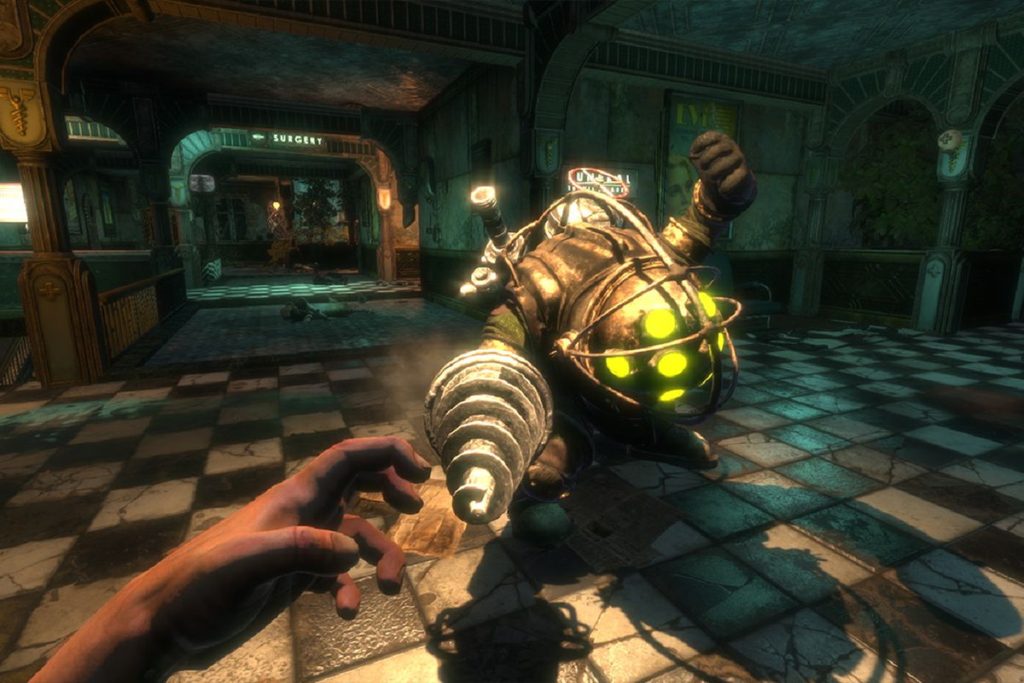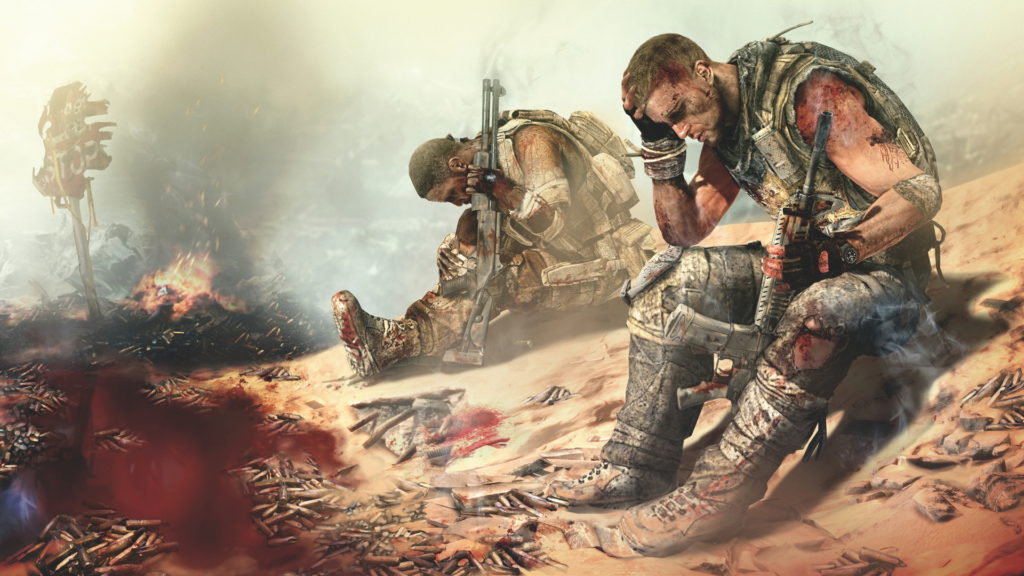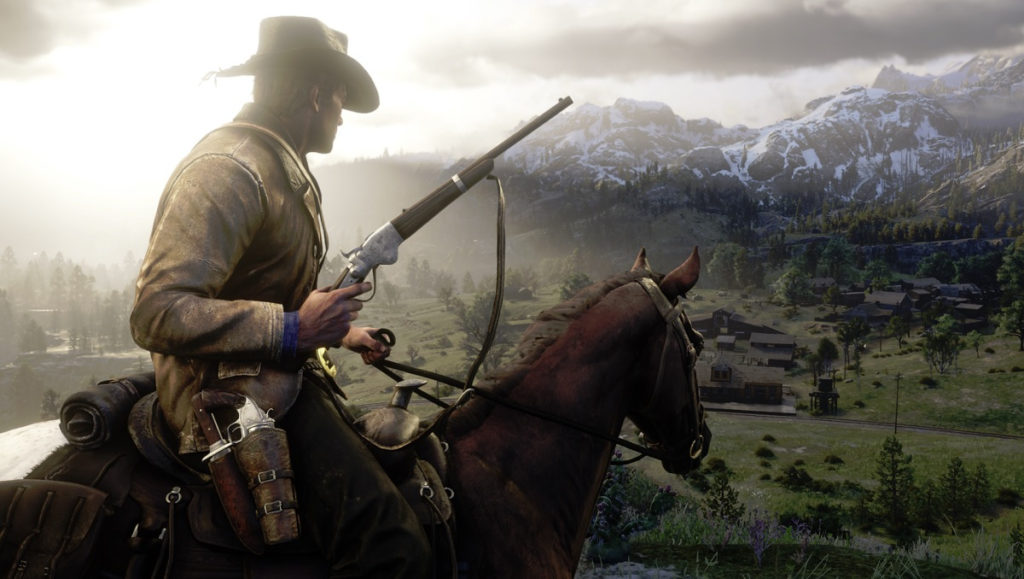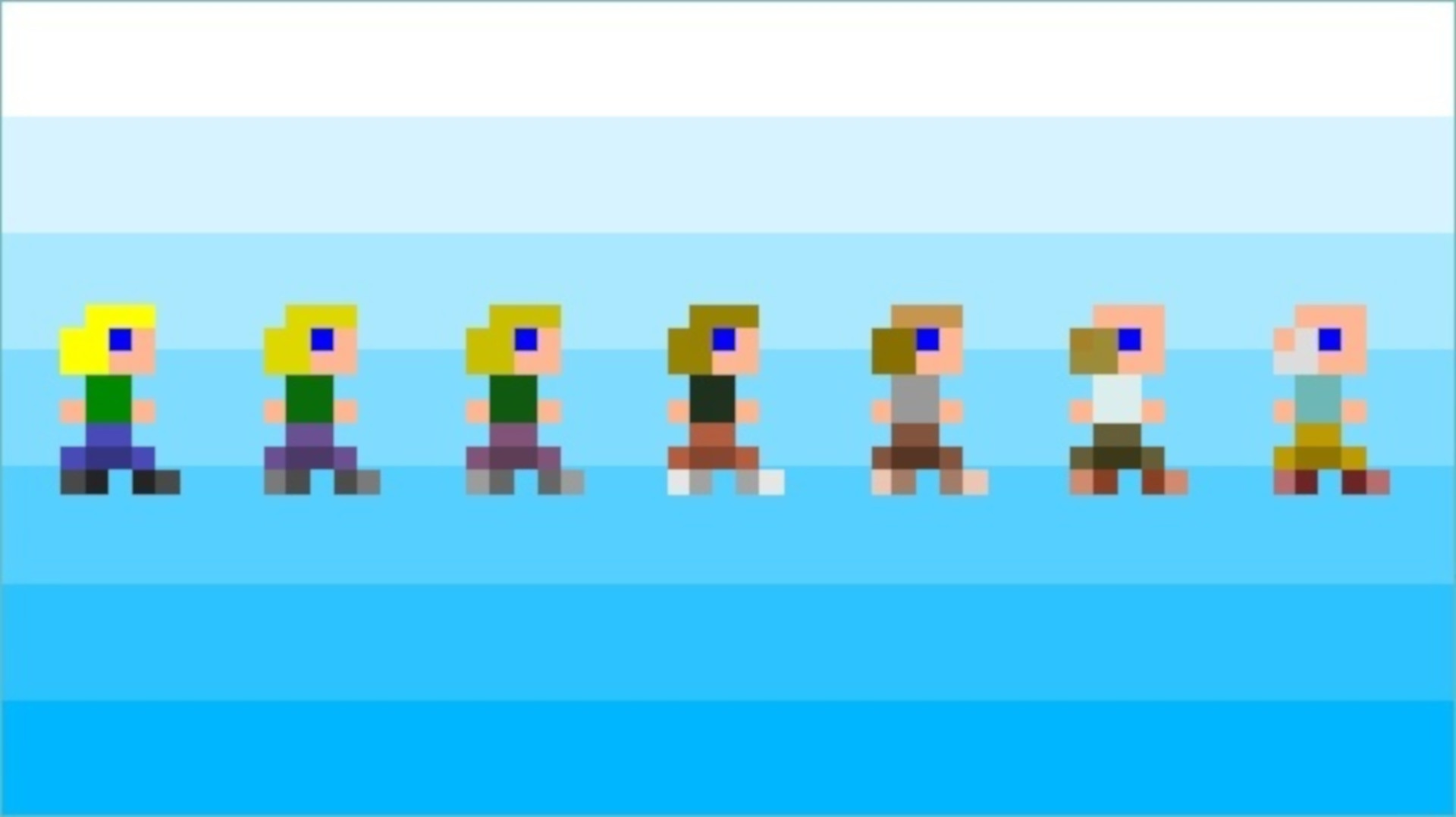Spoilers for Passage, Bioshock, Spec Ops: The Line, Red Dead Redemption II, and The Last of Us Part II
Bioshock. Spec Ops: The Line. Red Dead Redemption II. The Last of Us Part II. These were the first four games that immediately came to my mind while playing Passage, a 2007 indie game that our entire class had to play before the first day of class. Now, you may be wondering, Timmy, how on Earth does this quick 5-minute “retro” game remind you of some of the bloodiest, most graphic, and most depressing video games of all time? Well my dear readers, the way I came to these comparisons ultimately resulted in two specific aspects that I noticed all of these games share: predetermination and the illusion of freedom.

As you may recall, Passage ends with the character you play as ultimately dying after reaching old age after about 5 minutes have passed. While death is nothing new in video games, the reason why death in Passage is so significant is that your death ultimately results in the conclusion of the game. Now Passage isn’t like Super Mario Bros in the sense that if you die, you can come back to life and try again by using a green mushroom. No. In Passage, if you die, you die and that’s it. No second lives, no retries, no nothing. You can certainly try to play the game again, but no matter how many times you play, it will ultimately end the same way: with your death. The ending is predetermined, and this predetermination leads into my next point: the illusion of free will and choice
In Passage, the game doesn’t tell you what to do or how you play the game. Instead, you are given free rein to play the game however you like, and to some extent, Passage gives you a wide variety of ways to play. You can just walk right by yourself and never stop. You can walk all around the game looking for all the treasure chests that are hidden away behind tight passages. You can walk up to the girl at the beginning of the game, which thereby allows you to add a companion to your journey, thereby doubling the rate that the score at the top of the game goes up. You could walk right for 2 and a half minutes, and then walk left for 2 and a half minutes. Hell, you could literally just stand there and not move for the entire 5 minutes of the game. The possibilities in Passage are endless… but at the same time, there are zero possibilities in Passage because, in the end, your choices do not matter. Passage doesn’t really care how you play the game because how you play the game has no effect on the predetermined outcome. That is why the game doesn’t tell you what to do or what the objective is: it wouldn’t affect Passage‘s outcome anyway, so what reason is there to even give instructions? The game doesn’t reward or punish you for any actions you make because what you do is virtually meaningless. The game doesn’t even tell you what the number on the top right even means because it really doesn’t matter what that number means. It’s all just a facade that tricks you into thinking that you have free will, or at least that what you do has some kind of outcome on the game, but in the end, all of that is just a lie.
Passage is such a unique game when it comes to these ideas of predetermination and illusion of free will because I feel like games like this serve as a contradiction to how most gamers should feel like games should operate. I believe that gamers have become far too comfortable with the idea that our choices are the only thing that can and should matter in video games, which is why so many video games out there provide multiple endings (usually two endings that can be defined as “a good ending” and “a bad ending”): to give players the comforting feeling that they have a say in how a game ends or operates. I really believe that games that take away freedom of choice from players by giving the illusion of freedom really benefit in telling emotionally resonant and deep stories, and if done well like the way Passage does, it can leave an incredibly important impact on the players.

Bioshock, Spec Ops: The Line, Red Dead Redemption II, and The Last of Us Part II: all completely different types and genres of games, yet they accomplish the same goals and thematic ideas that Passage made. Bioshock is the literal textbook example of predetermination and the illusion of free will because the game reveals near the end that saying the phrase “would you kindly” forces the player to do whatever the game wants you to do, all without you even realizing it. Sure, the game gives you the illusion of free will like allowing you to decide if you spare or drain the Little Sisters or allowing you the choice of killing Sander Cohen after completing his tasks, but in the end, everything is already predetermined because the characters, and to a greater extent the game, control everything you do. The story is already laid out from beginning to end because Bioshock showcases that there’s no such thing as free will in a video game.

Spec Ops: The Line gives you the illusion of free will by providing multiple endings and offers you the freedom to tackle enemy encounters in any way you see fit, but in the end, none of that really matters because no matter what you do, all the important factors remain the same. Colonel Konrad is still revealed to be dead. Martin Walker is still mentally scarred from his horrifying experience in Dubai. Walker’s action results in the death and suffering of hundreds of thousands of innocent people. All of that horror and bloodshed all remain the same, and there’s nothing you can do to change that.
The Last of Us Part II, like Spec Ops, gives you the illusion of choice and free will by allowing you to tackle enemy encounters in any way you see fit using whatever weapons and upgrades you want, but none of that affects the main plot points of the game. Joel still dies by Abby’s hands. Abby is still captured by and tortured by the Rattlers. Ellie loses all of her friends through her, and to a lesser extent the players’, blood-filled journey of revenge. Ellie still ultimately chooses to let Abby go. The game forces you to commit despicable, horrifying acts of violence against fellow humans, and while these actions will make players incredibly uncomfortable, the game doesn’t really care because the outcome is ultimately predetermined. You can try to do a pacifist run while playing as both Ellie and Abby, and while this is possible, the game still treats you as a bad person: you still have to torture Abby’s friends, you still have to kill Abby’s dog, and you still have to watch Abby (a player you play as in the second half of the game) kill Joel.

Even in a game as open and free as Red Dead Redemption II, the game still uses the illusion of free will and predetermination to make certain aspects of the game incredibly definitive. Sure, Red Dead is a Rockstar game, and as a Rockstar game, you have the ability to do whatever you want wherever you want. However, in spite of this sense of freedom, the story of the game is still predetermined, and no matter what you do or what choices you make, it ultimately doesn’t mean anything in the long run. It doesn’t matter if you play Arthur Morgan as an honorable man or an evil outlaw, it will always end the same way: Arthur catching TB from beating a man, losing faith in Dutch for his incompetence, and ultimately dying from TB while fighting Micah Bell. No matter how you play, Arthur will still die by the end of the game, and nothing you do will change that.

Now, you may be asking yourself this: what’s the point then? If a game’s ending is predetermined and nothing you do can really affect the outcome of said game, then why should I even play to begin with? Why should I even bother picking up the game? What’s stopping me from looking at a Let’s Play of the game since what I do doesn’t really matter in the end? Well, my friends, it’s the same reason why you play any video game: for the experience! Sure, my choices in games like Passage might not mean anything in the long run, but in the end, should it have to? I am aware that Passage gives me a false sense of freedom/free will and that the game’s ending is predetermined, but I choose to play the game anyway. In fact, I played the game 5 times not just because I wanted to see all the possibilities, but also because the game is just super engaging. Hell, I might even play the game a couple more times because I want to keep playing. I know it can be a bit frustrating for gamers that their choices might not be anything in the long run, but in the end, it’s just a game. Just enjoy the ride, because, in the end, all good games should be just that: a thrilling, engaging ride, regardless if the destination is determined by you or the game.

